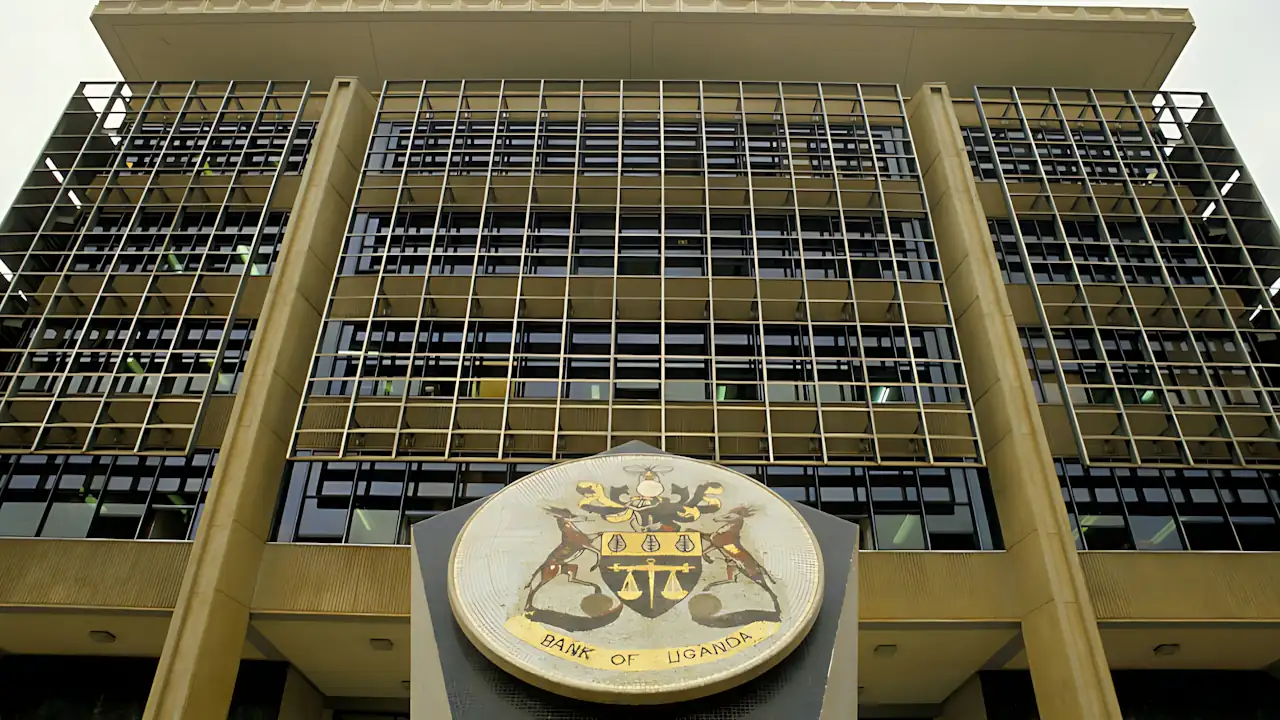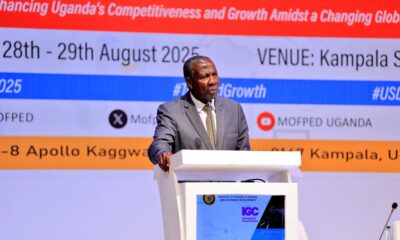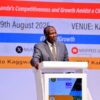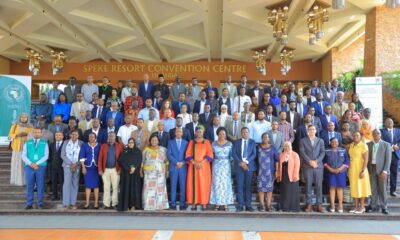Economy
Bank of Uganda Holds Key Interest Rate Steady at 9.75% Amid Global Economic Shakes
The Bank of Uganda (BoU) announced today that it will maintain its benchmark interest rate, the Central Bank Rate (CBR), at 9.75%. This decision, revealed by Governor Michael Atingi-Ego following the Monetary Policy Committee (MPC) meeting on Tuesday, reflects the central bank’s cautious stance in the face of increasing uncertainties within the global economy, despite domestic inflation remaining comfortably near its target.
In his official statement, Governor Atingi-Ego highlighted the growing volatility in the international economic landscape as a primary factor influencing the MPC’s decision. While Uganda’s headline inflation saw a slight uptick to 3.5% and 3.9% in April, up from 3.4% and 3.6% in March, primarily driven by rising food prices, the underlying core inflation remains below the BoU’s medium-term target of 5%.
Atingi-Ego attributed the current stable inflation environment to a combination of positive domestic factors, including a resilient economy, a stable exchange rate, and lower global prices for essential commodities like food and energy. He noted that the near-term inflation outlook aligns with projections made in February, largely due to the sustained stability of the Ugandan shilling. However, the central bank anticipates a slightly elevated medium-term inflation range of 4.5% to 5.5% for the fiscal year 2025-26, with a gradual return to the 5% target expected over time.
The Governor meticulously outlined potential upside risks to inflation that could necessitate future policy adjustments. These include adverse weather patterns impacting agricultural output, escalating geopolitical tensions disrupting crucial global supply chains, stronger-than-anticipated global demand leading to increased import costs, and a weakening of the exchange rate due to global economic and financial market volatility.
Conversely, Atingi-Ego also identified potential downside risks to inflation, such as a further decline in global commodity prices, weaker domestic demand than projected, slower global growth easing international price pressures, improvements in global supply chain efficiencies, and stronger growth in major economies reducing external inflationary pressures.
Turning to economic activity, the Governor reported that the Ugandan economy has demonstrated notable resilience in the face of ongoing global headwinds, including renewed geopolitical tensions and evolving international trade policies. The composite index of economic activity for the quarter ending March 2025 indicates continued growth, particularly within the services and construction sectors. However, agricultural output has experienced a slowdown due to unfavourable weather conditions, while household spending has been supported by increased real incomes.
The Bank of Uganda’s economic growth forecast for the current fiscal year remains optimistic, projecting a range between 6.0% and 7.0%, although Atingi-Ego acknowledged that the risks to this outlook lean towards the downside. This projection is underpinned by anticipated improvements in global growth, increased investment in the extractive industries, and ongoing government development initiatives.
Similar to the inflation outlook, Atingi-Ego detailed downside risks to economic growth, including persistent adverse weather affecting the crucial agricultural sector, slower global growth and trade restrictions impacting Uganda’s exports, continued geopolitical tensions disrupting global supply chains, elevated global inflation leading to policy uncertainty among trading partners, and potentially higher domestic borrowing costs hindering private sector investment.
On a more positive note, the Governor highlighted potential upside factors that could boost economic activity, such as a faster resolution of global uncertainties, positive developments in international trade, a rebound in tourism, pro-growth policies implemented in major global economies, and increased investment in Uganda’s burgeoning oil and gas sector.
Concluding his statement, Governor Atingi-Ego emphasised the MPC’s assessment that the current monetary policy stance is appropriate for maintaining inflation around its medium-term target. Consequently, alongside the unchanged CBR at 9.75%, the lending rate will remain at 11.75%, and the deposit rate at 7.75%. The discount rate will stay at 12.75%, and the bank rate at 13.75%.
The Bank of Uganda, under Governor Atingi-Ego’s guidance, reiterated its commitment to closely monitor both inflation and economic growth risks. The central bank affirmed its readiness to take necessary and proactive measures to ensure price stability and support sustainable economic development in Uganda. Future adjustments to the key interest rate will be guided by incoming economic data and a continuous assessment of the evolving domestic and global economic landscape.
Comments

























